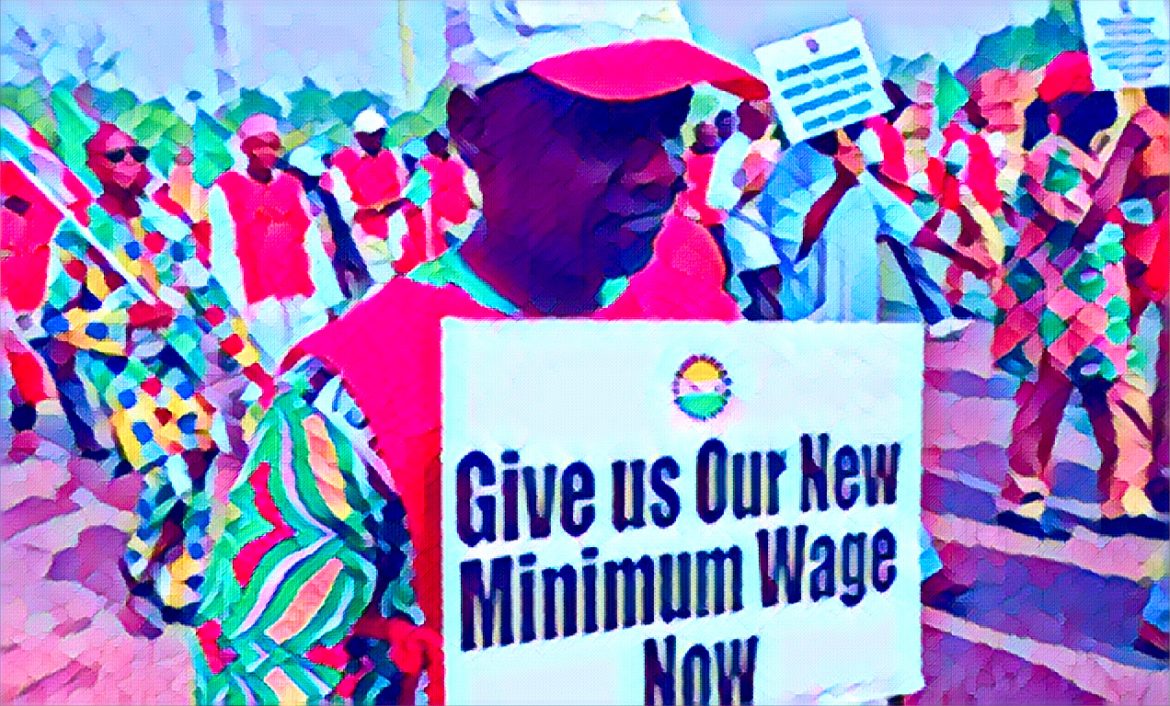Several Nigerian states are currently experiencing a fiscal crisis, with some contemplating laying off as many as 600,000 employees to enforce a new minimum wage. States such as Kano, Imo, Adamawa, and Taraba are allocating approximately 40% of their revenue to cover personnel costs. This financial burden is prompting many to consider implementing drastic measures.
Last year, the 36 states’ wage bills were 108% of their internally generated revenue (IGR), according to BudgIt, a fiscal sustainability advocacy group. States spent a total of N1.94 trillion on personnel costs, but their IGR was only N1.8 trillion. This spending is unsustainable without monthly Federal Account Allocation Committee (FAAC) receipts.
Data from 2018 to 2022 shows state IGRs averaging N1.49 trillion annually, despite a growth from N1.1 trillion to N1.56 trillion in 2019. However, revenue plummeted by nearly N350 billion during the pandemic year. This inconsistency highlights the ongoing revenue challenges at both state and federal levels.
In the past five years, states have not significantly improved their IGR performance. Most states’ revenue targets underperform by as much as 40%, making debt funding almost unavoidable. For instance, Lagos State aimed for a record-breaking N1 trillion in 2023, but its first-half results indicate it will only reach N800 billion.
Other states have also failed to meet their targets. Abia State, led by former bank managing director Alex Otti, reported N33 billion in revenue, only 33.3% of its target. This trend is typical across many states, forcing reliance on federation accounts, which provided 50% of retained revenue last year.
BudgIt’s report indicates only 14 states scored above 30% on the sustainability index. Over the past decade, sub-national IGRs have grown by only 15% in nominal terms, from N1.56 trillion to N1.8 trillion. When adjusted for inflation and currency depreciation, real growth is negative.
Implementing a new minimum wage may force states to slash their payrolls by up to 50%, affecting around 600,000 workers. BudgIt’s survey estimated the total number of state employees at 1.176 million in 2021. Even a 20% cut would increase unemployment by 240,000, exacerbating the economic crisis.
State governors, however, are wary of massive layoffs due to political repercussions. They might retain staff, increasing state debt and poverty levels. The 36 states have proposed an average wage floor of N52,000, with the lowest at N30,000 in Zamfara and the highest at N80,000 in Rivers.
The Federal Government has suggested a wage floor between N69,000 and N72,000. External pressure from international financial communities and development partners also influences these discussions. Economists warn that a high wage floor could trigger inflation, prompting the Central Bank of Nigeria (CBN) to tighten monetary policy, raising borrowing costs.
Godwin Owoh, a professor of applied economics, argues that states need to engage in revenue-generating activities to avoid insolvency. He criticized governors for relying on federal allocations instead of developing entrepreneurial skills.
Despite a significant drop in domestic debt from N5.86 trillion to N4 trillion in the first quarter, states still face financial challenges. Unfiled debts, including unpaid salaries and backdoor borrowings, continue to strain state finances.
The looming fiscal crisis requires urgent attention. Without strategic revenue generation and prudent financial management, states may face increased debt and poverty, destabilizing the Nigerian economy.
Source: The Guardian


